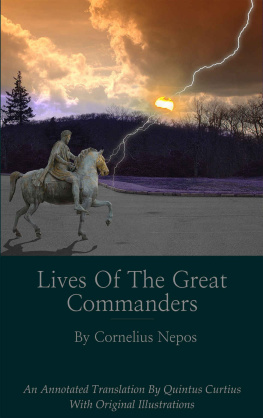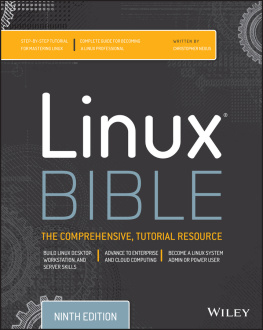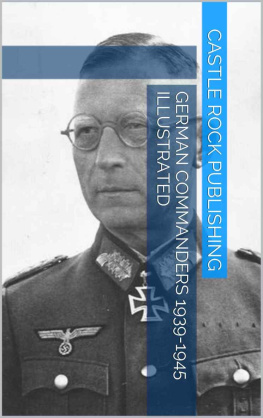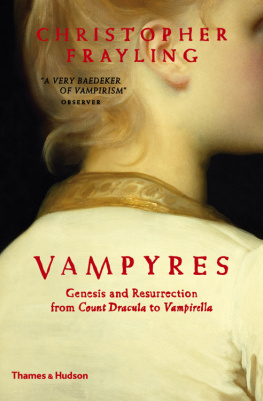Christopher R. Gabel - Great Commanders [Illustrated Edition]
Here you can read online Christopher R. Gabel - Great Commanders [Illustrated Edition] full text of the book (entire story) in english for free. Download pdf and epub, get meaning, cover and reviews about this ebook. year: 2014, publisher: Pickle Partners Publishing, genre: History. Description of the work, (preface) as well as reviews are available. Best literature library LitArk.com created for fans of good reading and offers a wide selection of genres:
Romance novel
Science fiction
Adventure
Detective
Science
History
Home and family
Prose
Art
Politics
Computer
Non-fiction
Religion
Business
Children
Humor
Choose a favorite category and find really read worthwhile books. Enjoy immersion in the world of imagination, feel the emotions of the characters or learn something new for yourself, make an fascinating discovery.
- Book:Great Commanders [Illustrated Edition]
- Author:
- Publisher:Pickle Partners Publishing
- Genre:
- Year:2014
- Rating:5 / 5
- Favourites:Add to favourites
- Your mark:
- 100
- 1
- 2
- 3
- 4
- 5
Great Commanders [Illustrated Edition]: summary, description and annotation
We offer to read an annotation, description, summary or preface (depends on what the author of the book "Great Commanders [Illustrated Edition]" wrote himself). If you haven't found the necessary information about the book — write in the comments, we will try to find it.
Great Commanders [Illustrated Edition] — read online for free the complete book (whole text) full work
Below is the text of the book, divided by pages. System saving the place of the last page read, allows you to conveniently read the book "Great Commanders [Illustrated Edition]" online for free, without having to search again every time where you left off. Put a bookmark, and you can go to the page where you finished reading at any time.
Font size:
Interval:
Bookmark:

This edition is published by PICKLE PARTNERS PUBLISHING www.picklepartnerspublishing.com
To join our mailing list for new titles or for issues with our books picklepublishing@gmail.com
Or on Facebook
Text originally published in 2012 under the same title.
Pickle Partners Publishing 2013, all rights reserved. No part of this publication may be reproduced, stored in a retrieval system or transmitted by any means, electrical, mechanical or otherwise without the written permission of the copyright holder.
Publishers Note
Although in most cases we have retained the Authors original spelling and grammar to authentically reproduce the work of the Author and the original intent of such material, some additional notes and clarifications have been added for the modern readers benefit.
We have also made every effort to include all maps and illustrations of the original edition the limitations of formatting do not allow of including larger maps, we will upload as many of these maps as possible.
Great Commanders
Edited by
Christopher R. Gabel, Ph.D. James H. Willbanks, Ph.D.
Combat Studies Institute Press US Army Combined Arms Center Fort Leavenworth, Kansas
Contents
This book is dedicated to all those who have served.
Figure 1. Alexander the Great
Figure 2. Genghis Khan
Figure 3. Napoleon Bonaparte
Figure 4. Captain Horatio Nelson
Figure 5. John J. Pershing
Figure 6. Field Marshal Erwin Rommel
Figure 7. General Curtis LeMay
Map 1. Manuever of Ulm and Pursuit to Vienna, September-November 1805
Map 2. Austerlitz, December 1805
Map 3. Simplified Sketch of Nelsons Battle Plan for Trafalgar
With the publication of Great Commanders, the Combat Studies Institute continues its mission of publishing CGSC Faculty scholarship and adding to the body of historical literature the thoughts and research of these distinguished Professors. These analyses are both interesting and useful in their discussion of what attributes and circumstances yield an extraordinary commander of martial forces. As the editors point out, this volume is not a study of the greatest commanders; rather, it is an examination of commanders who should be considered great. The seven leaders examined, in the various domains of ground, sea, and air, each in their own way successfully addressed the challenges of military endeavor in their time and changed the world in which they lived. Not only should students of history find this volume interesting, but practitioners of warfare, who may be given the solemn duty and responsibility of command, may garner insights into the qualities and abilities possessed by those commanders deemed to be great.
CSI The Past is Prologue!
Roderick M. Cox
Colonel, US Army
Director, Combat Studies Institute
We would like to thank Mr. Crosby Kemper and the Kansas City Public Library, Mr. Bob Ulin and the CGSC Foundation, and the National World War I Museum at Liberty Memorial for sponsoring the lecture series from which these essays were drawn. We are also grateful to the staff of the Combined Arms Research Library at Fort Leavenworth. And, of course, we are indebted to the Combat Studies Institute for agreeing to publish this collection.
In the fall of 2010, members of the faculty of the Department of Military at the U.S. Army Command and General Staff College met with Mr. Crosby Kemper, CEO of the Kansas City Public Library. The Library has a very aggressive public outreach program that includes a number of lectures series covering a wide range of areas and topics, but Mr. Kemper was interested in adding a new program on military history. Accordingly, he reached out to the Department of Military History at the Command and General Staff College, which has one of the largest groupings of military historians in the United States. The result of the discussions that followed was a seven-part monthly lecture series co-sponsored with the Kansas City Public Library by the CGSC Foundation and the National World War I Museum at Liberty Memorial. The lecture series began in November of 2010 and involved monthly presentations on great military commanders in history. The lectures were given by subject matter experts from the CGSC military history faculty. The essays in this collection are drawn from those lectures.
We will begin with an introduction that discusses what makes a great commander. The introduction will be followed by seven biographical essays and a selected bibliography.
August 2012
Christopher R. Gabel, PhD James H. Willbanks, PhD Fort Leavenworth, Kansas
by Christopher R. Gabel, Ph.D.
The command of military forces in combat is unlike any other field of human endeavor. If war is the ultimate form of human competition, then the commander is the ultimate competitor. The commander operates in an environment of chance, uncertainty, and chaos, in which the stakes are, quite literally, life and death. He or she contends against an adversary who is using every means, fair or foul, to foil his plans and bring about his defeat. The commander is ultimately responsible for every variable that factors into military success or failuretraining, logistics, morale, equipment, planning, and execution. The commander reaps the lions share of plaudits in victory, but also must accept the blame in defeat, warranted or not. Very often the line that separates fame and ignominy is slender indeed.
It is not difficult to identify great commanders, though the overwhelming majority of generals who win battles are never considered great. Something more than a favorable ratio of wins to losses is needed to establish greatness. From the perspective of history, the greatness of a commander also hinges upon the context within which he operated. Victories won against inept opponents, or victories which fail to lead to the attainment of greater objectives, seldom elicit much admiration. Victories won through the simple application of overwhelming superiority in numbers or materiel are often similarly discounted. The truly great commander is generally considered to be one who attains the unexpected or the unprecedented; one who stands above his contemporaries through his skill on the battlefield, or through the sheer magnitude of his accomplishments.
In selecting the seven great commanders presented in this volume, the contributors sought to cover a wide spectrum of military endeavor, encompassing a very broad time-frame, different nationalities and cultures, and representatives from ground, sea, and air warfare. The commanders selected were masters of warfare in their particular time and environment. Each capitalized upon the social, political, economic, and technological conditions of his day to forge successful military forces and win significant and noteworthy victories that profoundly altered the world in which he lived.
In regards to social context, the societies from which these seven leaders sprang varied tremendously, ranging from the nomadic tribal cultures of Asia to American industrial-age egalitarianism. Each commander faced particular challenges in operating within the social norms of his day and age. These norms govern how leaders are selected, who serves in the military, and to what purpose military operations are conducted. The great commander recognizes these norms, and extracts the maximum possible military effectiveness from them.
Similarly, this study embraces a wide variety of political contexts. Each of the seven commanders herein proved adept at operating within the political milieu of his era, understanding if not manipulating the political systems of his country to best advantage. Ascension to a position of high command is as much a political as a military process, and the waging of a successful military campaign relies first and foremost upon a clear grasp of the political purpose underlying military operations. Three of the seven were not only great commanders but also sovereign rulers. It is probably axiomatic that any great commander is also politically astute, at least within the military institution that produced him.
Next pageFont size:
Interval:
Bookmark:
Similar books «Great Commanders [Illustrated Edition]»
Look at similar books to Great Commanders [Illustrated Edition]. We have selected literature similar in name and meaning in the hope of providing readers with more options to find new, interesting, not yet read works.
Discussion, reviews of the book Great Commanders [Illustrated Edition] and just readers' own opinions. Leave your comments, write what you think about the work, its meaning or the main characters. Specify what exactly you liked and what you didn't like, and why you think so.

![Christopher R. Gabel Great Commanders [Illustrated Edition]](/uploads/posts/book/291126/thumbs/christopher-r-gabel-great-commanders.jpg)









